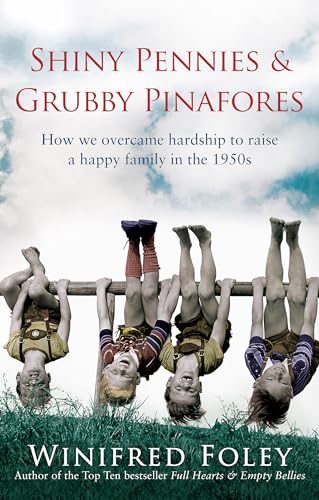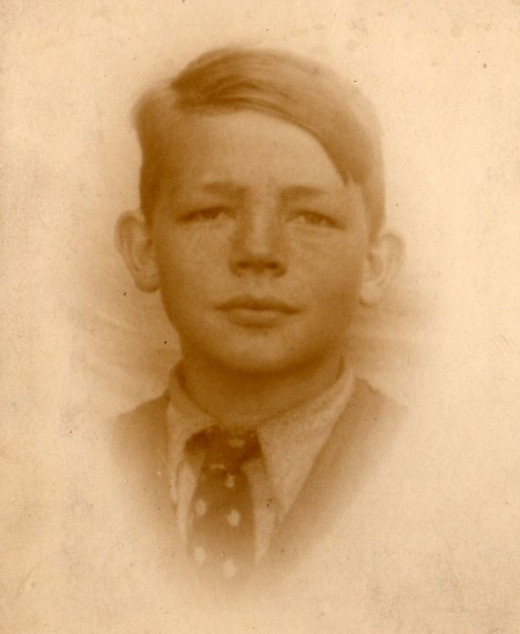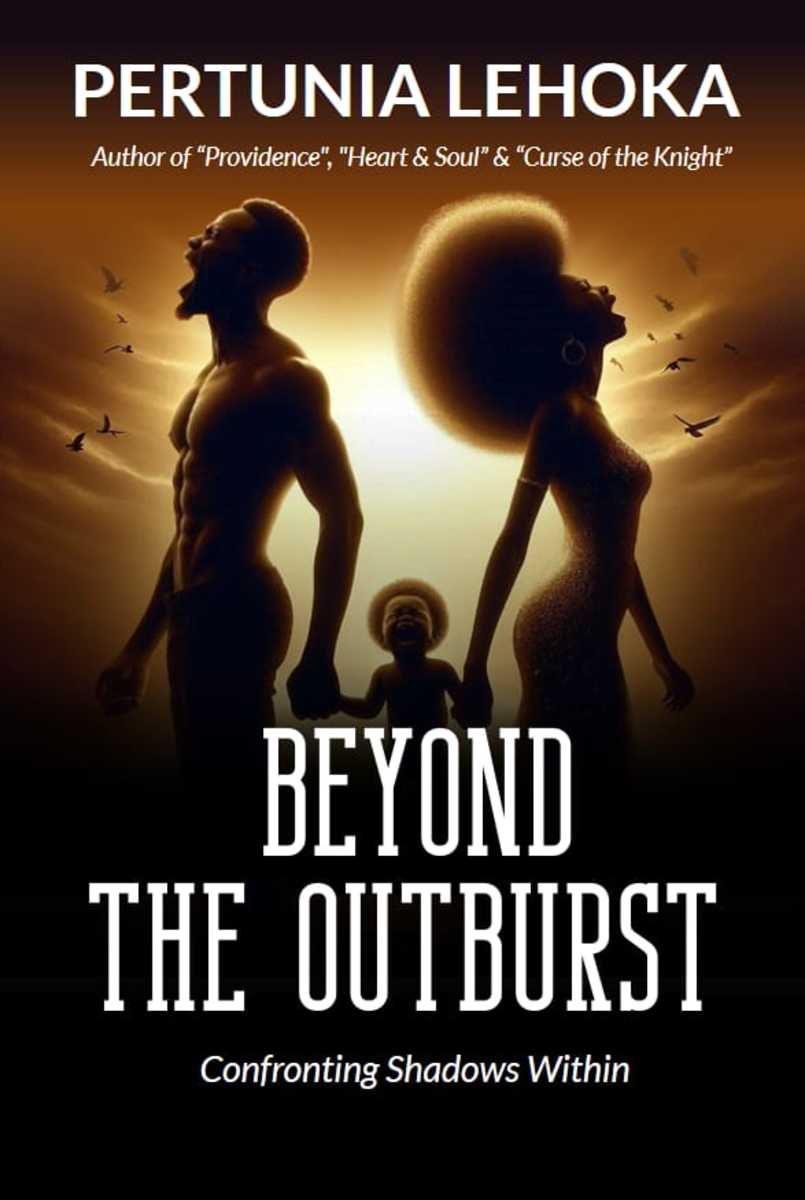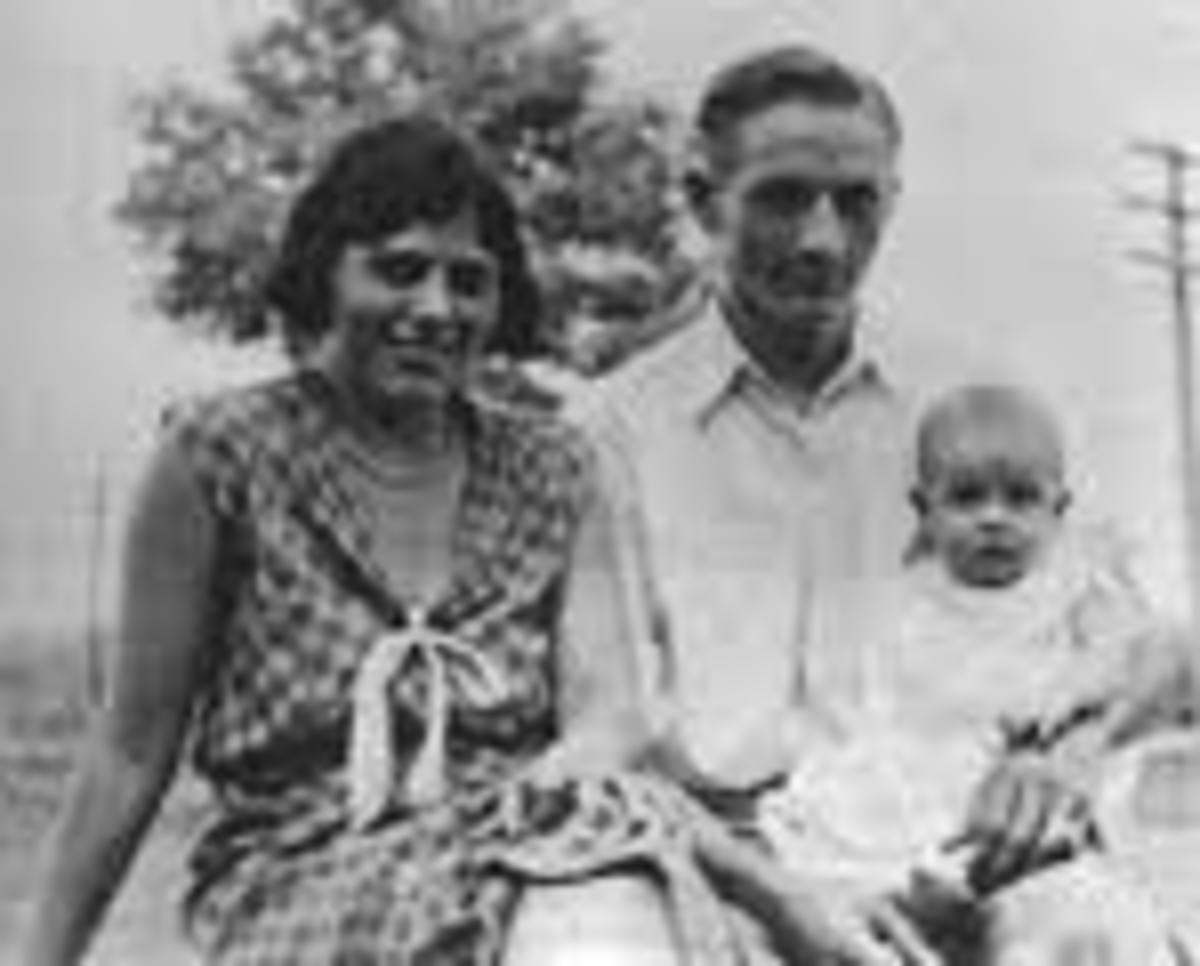Shiny Pennies and Grubby Pinafores by Winifred Foley


From the Author of 'A Child in the Forest', Later Known as 'Full Hearts and Empty Bellies'
This photograph could easily be one of Winifred Foley, but I am afraid in fact it's not. It is actually a photograph of one of my aunties taken as a child born around the 1920s and about 2 miles from the birthplace of Winifred Foley in a little place called High Beech in the Pludds. Drop down the hill from the Pludds and you find yourself on the main road between Cinderford and Coleford at a village called Brierley. This was where Winifred Foley was born in 1914, the daughter of a miner and destined to enter a life of domestic service.
The book 'Shiny Pennies and Grubby Pinafores is the third in Winifred Foley's 'Forest Trilogy' and was recommended to me by my sister-in-law who had spotted the Forest of Dean connection and decided to buy it on the basis she might enjoy a story about the Forest of Dean. She was well aware that this was a very small part of England and of course my birthplace. She fell in love with the book and read it from cover to cover.
So, as you can imagine, when we called in for a visit, the book was waiting for me with a high recommendation to read it. I was of course immediately intrigued, because even though Winifred Foley was probably a decade older than my parents and their siblings, much of what she described in her book evoked memories of stories my father had told me when he was still alive. I have now finished the book and I was not disappointed, although the next time I see my sister-in-law, I am under strict instructions that the book has to be returned. It has become a firm favourite in her library and unfortunately for me, mine as well.
One or Two Extracts
Country born, I knew the value of a garden, and with six mouths to feed on a small income I began to wish my husband was more of a man of the soil.
He and Chris had become quite handy with a spade, however, because they regularly dug deep holes in the copse at the back for emptying the privy bucket.
Shiny Pennies and Grubby Pinafores - A Book from the Forest of Dean
Born in the early part of the 20th century, Winifred Foley lived a hard life in an unforgiving world, but the story is one of family relationships, love and coping with all the adversary life threw at her.
Just think on't , Mother, thee an I flyin' in over thic Marble Arch
The Forest Dialect - Ow Be Obut, Ow Bist Thee Doin'

Full Hearts and Empty Bellies - Winifred Foley
One thing you can say about Winifred Foley is that she wrote from the heart, you can feel every back pain and share the trials and tribulations she went through. Writing honestly about a time and place that was both beautiful but harsh at the same time. Anyone that was born and raised from the 1920s onward is almost sure to connect with this book, especially if they come from a working class background.

It is not without some amusement that I remember the puzzled look on my wife's face when I first introduced her to my father. A Forester born and bred with a dialect to match. My wife was a foreigner of course, coming from Yorkshire, not that there was any serious racism going on, just a complete breakdown in communication.
Harrogate is a posh part of Yorkshire and as such the dialect from that city isn't quite as indeterminable as some parts of Yorkshire, but Forest is Forest no matter what part you come from, and for my wife there were occasions that it may as well have been a foreign language. Needless to say there were plenty of 'after the event' translations going on, especially in the early days. This was so she could get a grasp of what the conversation had actually been about, even if it was a bit belated. Fortunately much of the break down in communication was masked by timely nods, smiles and the word 'really'. Amazing how a conversation can be held between two people without any real information being exchanged.
There were parts of Winifred's book, particularly where phonetics had been used to make small injections of true Forest dialect into the prose, that brought more than one or two smiles to my face, party because of memories mentioned above, but also for nostalgic reasons drawn from my own childhood memories of living in the Forest of Dean. I could see why they were small injections, she would after all be hoping to reach a wider audience than perhaps the inhabitants of Coleford or Lydney. So the Forest twang would need to be, at the least, a little limited.
But it was more than the phonetics that drew me into this book, it was the stories of no heating, no running water, of having to have a working productive garden to help feed the children. Even as a child I remember how big our garden was and how productive it was for virtually the whole year.
My father was a man of the soil, he knew what to plant, when and how to get the best from the crops. It was a case of having to, especially when you come from a family of 9 children, all living in a two up two down cottage in the Pludds.
There is no doubt that as a place to live, the Forest of Dean really was very beautiful, but everyone had to do their share, fetch water, tend the garden and the animals; life was far from easy. There were personal sacrifices to make as well, my father won a scholarship to a college but was told that the cost was too great. So instead, like Winifred Foley's father, he had to go and work down the pit. My suspicion is that there were many clever people who, because of what was essentially abject poverty, were never allowed to follow their true vocations.
Hardship is not forgotten and is often passed from one generation to another, as kids we had to do our share. We had family jobs to do to help bring money in and that took priority over personal progression such as getting a job to earn a bit of pocket money. We were allowed to take jobs and of course we did, but it didn't mean we could abandon our family duties.
I remember one year as a child, when my father hurt his back, that I got the job of digging over the garden in preparation for the seasons planting. I had of course helped out occasionally, digging the odd patch over here and there. But this was different, this was the whole vegetable garden top to bottom and I can assure you that, once I had finished this chore, I had a healthy respect for the amount of work that was involved and the fact my father did this year on year. Thankfully he had recovered the following year so normal duties were resumed and I for one was quite glad the responsibility had returned to a fully grown adult.
As you can probably see, due to the similarities in the lives of Winifred Foley, her husband and her children to our own existence, this book appealed to me on many different levels. Those similarities between the life, the times and the place of Winifred Foley's upbringing and that of my parents and my own family ensured I would connect with this book.
People knew how to work and how to make do back in those days, having survived the second world war, adulthood was spent at a time when the country was generally broke and welfare was not really readily available. This did change fairly quickly following the war and people's lives along with it.
Even in my generation, when I was a child, I remember the arrival of our first black and white television and of a phone being installed, actually the latter was not until I was a teenager and, as I was reminded by mother only a little while ago, I had to pay for the phone otherwise it would not have materialised. Many of the accouterments of life, that are taken for granted in modern times, were very much luxury items as little as 45 years ago. This book reminded me of those times and what life was really like in the 60's when I was growing up.
We still talk of times when there was no central heating and the only way you could see through the window on a cold frosty morning was to breath on the glass to make a peephole. Then we would have to hop from one mat to another to get to the bathroom without stepping on the cold linoleum floor covering. The objective in the winter was to get to the bathroom, get dressed and downstairs to the single room in the house that was heated as quickly as possible. Then you could bask in the heat from the Rayburn for as long as your mother would allow you. Not very long normally, the reasoning being that getting to close to the heat would melt your bones. I am still not convinced that was true.
If I have a critiscm of the book, it will simply be the lack of the mention of actual places in or around the Forest of Dean by name. There is the odd mention of Woolworths in Gloucester and the Speechouse Hotel, but that is it from what I remember. Admittedly my reasons are selfish, if you don't come from the Forest of Dean there will be many small places that you will never have heard of anyway, but as I am a child of the Forest myself, a few more mentions would have been nice. The nostalgia of this book left me wanting to know specifically where the characters had trod, what schools they went to and which communities they were part of. But I guess I can imagine and it is a minor oversight, in a very well written book, which is easily forgiven.
Is Austerity Making Life Too Tough - Or have we just gone soft?
There are many who think we are currently living in very tough times, some have even gone back to growing their own vegetables to help save money. But there was a time when austerity was a way of life for the masses and even getting a hot bath was a real treat. So who do you think had the toughest times?
Has life become so easy that most people have forgotten what real hardship is like?
New Authors and New Books on Amazon - Fiction and Non-Fiction
Not all the best writers are best sellers, sometimes it takes a while for a good writer to be discovered and if you only ever buy best sellers you may be missing out on some great books.

Life in the Twentieth Century - Overcoming hardship isn't so bad if you are happy
When would you liked to have been a young adult starting out on life?
A Child of the Forest
A Child of the Forest - Winifred Foley
Winifred Foley grew up in the Forest of Dean, worked in domestic service through some very tough times and then discovered she had a talent for writing. Her success made her family financially secure, something she really wasn't used to and in fact made her a little uncomfortable. Being broke was a way of life, but it was a way of life she knew and understood.
Books on Kindle or in Paperback for the entertainment of adults and children. - Book lists of interest and a little more information about Gloucestershire
- Book Reviews on Tumblr
A series of book reviews of books available on Amazon and other major distributors. - Historic Gloucester
A short tour of the beautiful city of Gloucester and the capital city to the Royal Forest of Dean.









